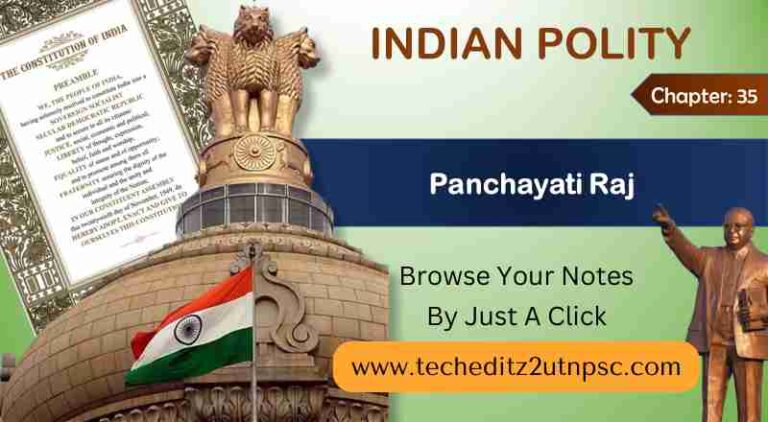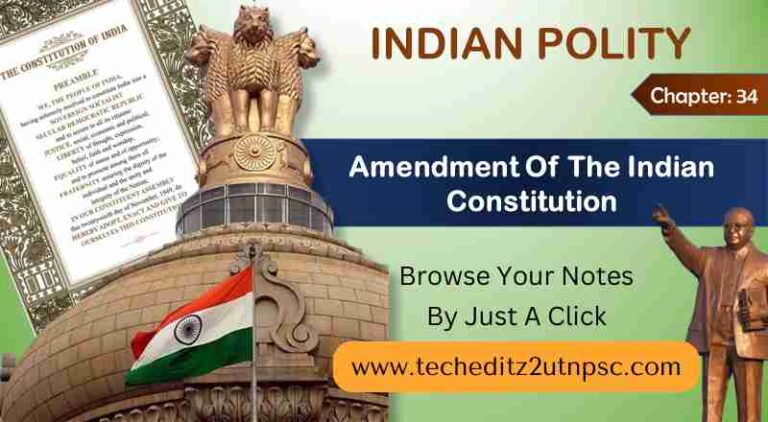support@techeditz2utnpsc.com | 8300-921-521

Comptroller And Auditor General
Indian Polity
Chapter 28: Comptroller And Auditor General
Comptroller And Auditor General:
- The Audit and Accounts Department was first created during British rule in 1753.
- Dr B R Ambedkar: The CAG is the most important officer under the constitution of India.
- CAG is the head of Indian Audit and Accounts Department.
Up to the year 1976 the functions of Accounting and Auditing were combined in the office of the CAG. - Since the year 1976 the CAG is relieved from the responsibility of the compilation and maintenance of accounts of Central government.
- Since 1976, the CAG is concerned with the auditing only.
- At the state level these two responsibilities are not separated.
- The CAG is the guardian of Public purse (government money).
- The CAG is an agent of the Parliament.
- The CAG is the Watchdog of the Indian Public Finances.
- There are 4 bulwarks (Security, Fortification) of the democratic system of government in India.
- Supreme Court (SC)
- Election Commission (EC)
- Union Public Service Commission (UPSC)
- Comptroller and Auditor General (CAG)
Appointment:
- The CAG is appointed by the President.
Tenure:
- The CAG holds the office for a period of 6 years Or Up to the age of 65 years whichever is earlier.
Resignation:
- The CAG submits the resignation letter to the President.
Removal:
- This is mentioned in Articles 148 (1) and 124 (4).
- The CAG is removed by the president of India only in accordance with the procedures mentioned in the Constitution.
- The CAG is removed by the President of India in the same manner and same grounds as a judge of Supreme Court.
Salary:
ADVERTISEMENT
- The Salary and other service conditions of CAG are decided by the Parliament. After Retirement:
- The CAG after retirement is not eligible for further office either under the government of India or government of a state.
Functions Of CAG:
- Article 149: This article of the Indian Constitution authorizes the parliament to prescribe the duties and powers of the CAG.
- The CAG audits (verifies) the accounts related to the expenditure incurred by the Central and State governments.
- The CAG compiles and maintains the accounts of the state governments.
- The CAG also audits the accounts of the bodies and authorities financed by the Central and state revenues like corporations and companies.
- The CAG audits the accounts of any authority when requested by the President or Governor.
- The CAG as an agent of the parliament conducts the audit of expenditure on behalf of the Parliament.
- The CAG is responsible only to the Parliament.
- The CAG acts as a friend, philosopher and guide of the Public Accounts Committee (PAC).
- PAC is explained in the chapter on Parliamentary Committees.
Submission Of Report By The CAG:
Central Government Report:
- The CAG submits the report relating to the accounts of the central government to the President of India.
- The President places the report in the parliament.
State Government Report:
- The CAG submits the report relating to the accounts of the state government to the Governor of the concerned state.
- The Governor places the report in the State Legislature.
Visit Our YouTube Channel For More Free Videos: Click Here


